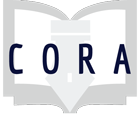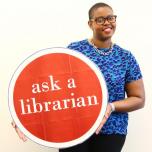Using three example excerpts on citation practice and the experiences of specific scholars, attendees will interrogate and discuss how whiteness and other oppressions impact citation practice using a series of questions.
aisha.conner-gaten
Primary tabs
Assignments Contributed
This workshop introduces zines to a First Year Women's and Gender Studies class including what they are, general history and culture in the United States, and the process of making zines. This workshop supported a class assignment where students make zines featuring class readings and a reflective essay including original creative works. In the sessions, students recieve "handout" zines for note-taking and reflective work, a short lecture on zines, and work with databases to find pieces for their zine topics or ideas.
A two part instruction session that uses the "fish bowl" method, or students as instructors, to find scholarly sources and complete an annotated bibliography citation.
This instructional session coincided with a project comparing data from two cities for an Urban Studies 1000 level (Freshmen) course. The session provided a basic overview of Simply Map as a web-based application, described the data available within and its origins (Census, American Community Survey, etc.), two activities for creating and visualizing the data, and supporting materials for understanding the data including a libguide and deliverable handout.
Assignments Collaborated
In an effort to provide students with an open space to learn about and discuss recent national concerns over “fake news,” the library offered four sessions of the workshop “Keepin’ It Real: Tips & Strategies for Evaluating Fake News” during a campus-wide Inauguration Teach-In on Friday, January 20, 2017. During this session, students had the opportunity to talk about how misleading news sources (encompassing misinformation, disinformation, click-bait, propaganda, etc.) have affected their views on civil discourse, specifically relating to the recent U.S. presidential election.
Assignments Adapted
Used this for a 2000-level African American Studies class. I had them compare two databases of their choosing on document, still rating each but writing hints to themselves about how to better help the search. I also asked if the database was interdisciplinary or subject specific and which keyword phrases they used during their searches.
Adapted for an Education and Public Good course. Switched out databases to include ERIC, Proquest, etc. and noted that legislative documents may be impactful depending on the topic.
I adapted this version for a 60 min 1000-level Women and Gender Studies class session. I removed a lot of the discussion questions and added a whiteboard small group exercise in the beginning. Students are given two facts: the average wikipedian is male and between the ages of 17-40. I ask them to tell me more about the average Wikipedian including race/ethnicity, religion/faith, and economic status. I also do a short overview of Finding Sources on popular sources, including newspaper collections in the library. I end with a quick overview of the "Edit" tab of Wikipedia pages and explain the internet culture of Wikipedia including deleting people's edits and toxic environments they may encounter.
I used this for an English as Second Language community college class finding web and library sources for an argumentative paper. Topics were pre-selected so students were able to swap and select keywords easily based on non-essential words and research question structure. I also changed the database options from anything in the A-Z list to our discovery tool or the internet so they can compare results across both tools. Here is my version of the worksheet for ESL151.
Contributor Stats
| Total views | Adapters Count | Comment count | Document Downloads |
|---|---|---|---|
| 1,519 | 1 | 0 |
|
| Total views | Adapters Count | Comment count | Document Downloads |
|---|---|---|---|
| 1,496 | 0 |
|
| Total views | Adapters Count | Comment count | Document Downloads |
|---|---|---|---|
| 980 | 4 | 1 |
|
| Total views | Adapters Count | Comment count | Document Downloads |
|---|---|---|---|
| 261 | 1 |
|

